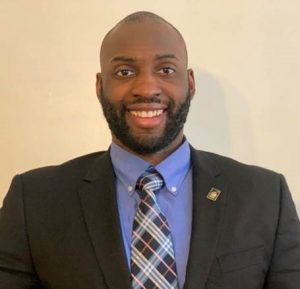Recently, we had the pleasure of reconnecting with some of our former interns as they begin to wrap up their college careers. We asked them to provide their perspective on leadership, what the next generation is expecting out of organizational leaders as well as what opportunities and exposures will be instrumental in developing emerging leaders.



Solutions Studio: Based on a leadership experience you have had in college, what have you learned about leadership and how will those learnings influence your approach to leadership in the long run?
Shirly Liu, University of Pennsylvania '21: My leadership experiences in college have taught me that leadership has nothing to do with titles, or the seniority of one's position within an organization or student group. Instead, being a leader means having the ability to influence and inspire others, as well as the capability to turn ideas into a reality. Similarly, I have also come to realize the importance of having strong interpersonal relationships with others and maintaining a social community within any given organization.
Over the years I have been on a learning journey of how to connect with people, understand their needs and where they are coming from, as well as how I can support them. In the long run, these experiences will definitely influence my leadership approach to be more focused on the people that I work with and cultivating those relationships. However, I also do believe that leadership is a fluid practice, and therefore changes in leadership styles are to be expected depending on the needs of the people who I work with.
Kevin Abrokwah, University of New Haven '21: The biggest thing I have learned about leadership is that it needs to be adaptable. No one type of leadership style can work for every task or team. When diversity of thought, experiences, contribution, and skill sets merge it can create a wonderful opportunity for learning as well as provide better, more creative outcomes.
When leadership is not flexible heads can bump and progress can seem effortful or worse stagnant. For me, my approach to leadership is to analyze the team I am on to understand strengths and weaknesses to lead in a way that is most beneficial.
Alyssa Gill, West Chester University '21: As the Vice President of Psi Chi: The International Honor Society in Psychology at WCU, I have learned that being a leader manifests itself in various ways. For one, a leader is a strong, confident individual that takes charge when difficult decisions need to be made and guides a team towards success. At the same time, we are all human and it is okay to make mistakes. We live in a society that is set on perfection and doing things the “right” way.
However, there are different approaches one may address a situation and a leader strives to be open-minded and provide guidance to their team. In the long term, my approach to leadership is to maintain a balance of being open-minded while taking charge.
***
SS: When you think of yourself and your peers, what do you think organizational leaders will need to think about or do differently to motivate and inspire the next generation of talent?
SL: When I think of myself and my peers, I think there are several things organizational leaders will need to think about or do differently to motivate and inspire the next generation of talent. The first is to appropriately challenge them, by providing meaningful work that connects to the organization's mission and strategy. More often than not, the majority of my peers greatly emphasize their desire to make an impact within a company, and the importance of partaking in key decision-making processes. A lot of them are values-driven, so it is critical that they are able to understand why their role is important to the company, and where they fit in the bigger picture in order to keep them engaged.
Secondly, I think providing ample growth opportunities and transparent feedback are also important. When considering my own mindset and those of others around me, stagnation is something that we try to avoid, whether it's in our personal or professional lives. We thrive and are motivated in environments that provide opportunities for continuous learning, which I think is important for organizational leaders to keep in mind when working with the next generation of talent.
KA: My generation seeks opportunities to learn more skills and take on interdepartmental projects. A common theme that I have seen is that my generation will not stay at a position if we do not feel that we are being invested in to grow, not just in promotions, but laterally. Gone are the days of doing one job/task for 40 years then retiring, we are seeking more experiences. In addition, flexibility for different work times and settings will be needed to accommodate for preferences in work styles.
AG: Based on my current thoughts, organizational leaders need to focus on viewing situations from all angles when motivating and inspiring upcoming leaders. Every individual is unique in their own way and having the ability to know what works best for the team in order to succeed is crucial. I feel as though the next generation of talent is honest, dedicated, and flexible. Thus, leaders need to adapt and be open to change. From the words of Albert Einstein, “The world as we have created it is a process of our thinking. It cannot be changed without changing our thinking”.
***
SS: As you think about your future career aspirations, what type of developmental opportunities do you think will be helpful to prepare you to grow as a professional and take on leadership responsibilities down the road?
SL: While pondering my future career aspirations, creating meaningful connections through networking is invaluable. There are countless ways to make connections with professionals via college campuses, internships, LinkedIn, events, and more. As a young leader, having mentors to help guide me as I emerge into the start of my future career is beneficial beyond words.
Additionally, attending seminars to build one’s knowledge and gain multiple perspectives, regardless of the field you’re in, is crucial to professional growth. These developmental opportunities have given me the tools, resources, and confidence to grow as a leader and take on future opportunities down the road.
KA: The opportunity that would be most helpful to me in preparation for future leadership opportunities are more leadership focused internships. What I have found are that many internships are focused on just having the intern complete tasks in hopes of learning skills to be used but miss the greater opportunity to develop leaders.
Interns should walk out from an internship having not just gained hands on experience but confidence in their ability to lead and manage in some form. In addition, gaining more opportunities to communicate across departments to better see how they work together towards organizational goals, missions, and visions.
AG: As I think about my own future career aspirations in Human Resources, I think gaining a wide array of industry experience and relevant mentorship will be the most helpful way to grow professionally and prepare for leadership roles.
As a firm believer in the saying that growth never comes from staying in your comfort zone, I always aim to try different things and learn from these explorations (whether attending networking events or taking on a new project, etc.), both of which are beneficial for my growth and allow me to draw from different experiences in my day-to-day work. Likewise, mentorship is also an important developmental opportunity, as the guidance from someone who has already achieved what I want to accomplish is invaluable.
***
We would like to thank our former interns for contributing to this month’s Newsletter. We wish them the best of luck in their future endeavors.









